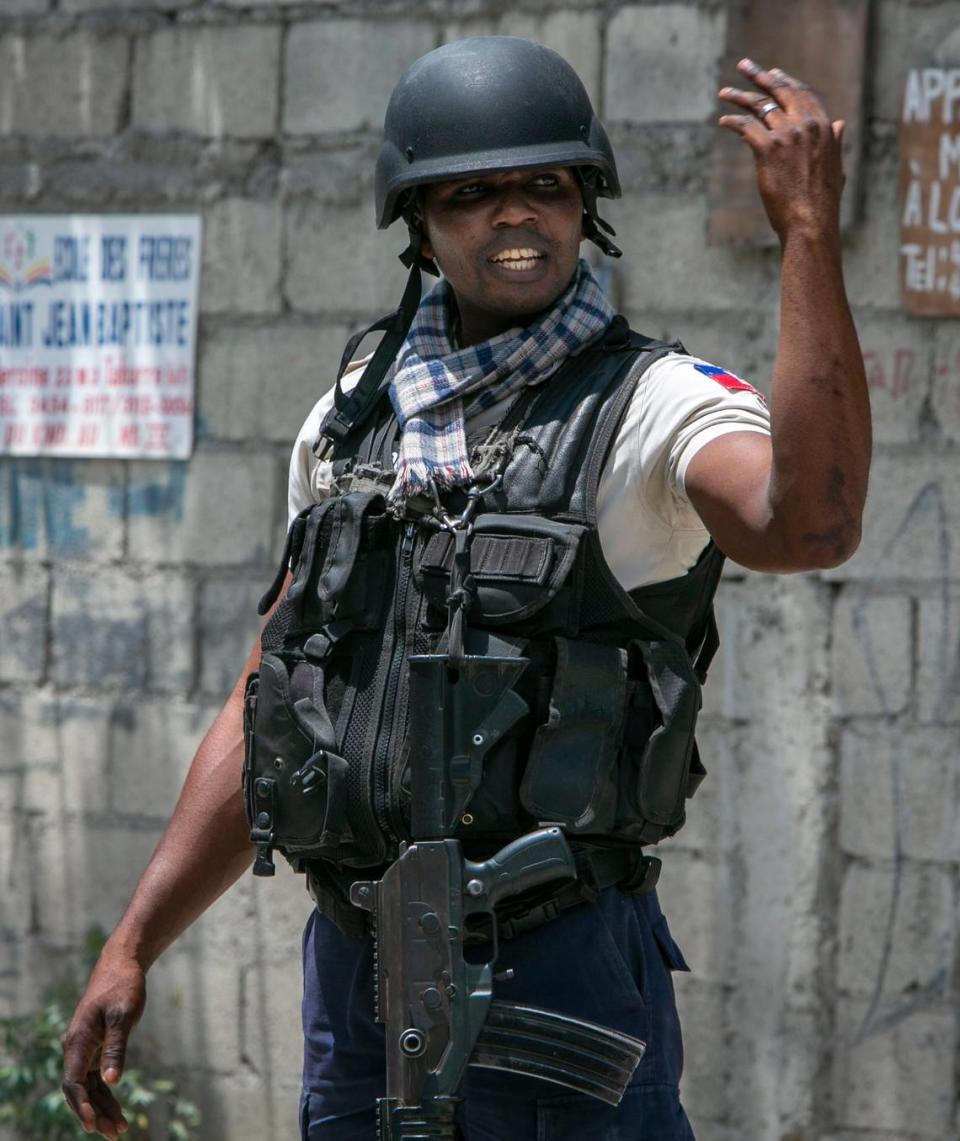Haiti and Kenya work on security agreement to revive multinational security mission
- Oops!Something went wrong.Please try again later.
The government of Haiti has asked Kenya to set up a bilateral security agreement that it hopes will allow for the deployment of 1,000 police officers from the East African nation and salvage a Multinational Security Support mission that was put in doubt last week with a Nairobi court ruling.
The request was confirmed to the Miami Herald by a Haitian government source who was not at liberty to discuss the matter, and had few details about what the document entails, including what Haiti’s responsibility in such an arrangement would be. But in an interview with Reuters, Kenya President William Ruto on Tuesday confirmed that his government is working on putting a “reciprocal agreement” in place with the Haitian government.
On Friday, the High Court in Nairobi blocked the deployment of Kenyan police officers to the volatile Caribbean nation, citing the lack of a “reciprocal agreement” between the two nations. Only countries that have such an arrangement with Kenya can receive police officers, the court’s sole judge, Enock Chacha Mwita, ruled. Otherwise, only the Kenya military can be deployed abroad.
The U.S., which had taken the lead in trying to find a country to head an international armed force into Haiti to help battle gangs that have taken over much of the capital, has insisted that the intervention be led by police officers and that it not be a United Nations mission. The U.S. later co-wrote with Ecuador a U.N. Security Council resolution authorizing the deployment — one of several stipulations dictated by Ruto when he agreed in July to consider helping Haiti’s beleaguered national police root out violent gangs. The Security Council approved the resolution in October.
In the interview with Reuters, Ruto said he expects a response shortly that would satisfy the issues raised by the court.
“So that mission can go ahead as soon as next week, if all the paperwork is done between Kenya and Haiti on the bilateral route that has been suggested by the court,” Ruto told the wire service following an Italy-Africa summit in Rome.
Ruto said Haiti had actually sent the request formally months ago.

“We reaffirm our support of ongoing international efforts to deploy a Multinational Security Support mission for Haiti, as requested by Haiti and authorized by U.N. Security Council Resolution 2699, and renew our calls for the international community to urgently provide support for this mission,” the statement said.
While acknowledging the ruling of the high court, the statement also noted the government of Kenya’s stated intent to appeal.
“It is urgent that the international community respond to the unprecedented levels of gang violence and destabilizing forces preying upon the Haitian people. At the same time, we call for the restoration of democratic order through an inclusive political process in Haiti,” the State Department said. “We continue to urge Haitian stakeholders to reach consensus on power-sharing and inclusive governance. The only legitimate path to long-term peace and stability is through free and fair elections.”
Haitian Prime Minister Ariel Henry, who took control of the country after the July 2021 assassination of President Jovenel Moïse, first requested the international community’s help in October of 2022 when armed gangs blockaded the country’s main fuel terminal in Port-au-Prince for the second time in a year. The blockade went on for nearly six weeks. forcing hospitals, schools and businesses to close their doors as they ran out of fuel, drinking water and food.
By the time Kenya volunteered to lead the effort last summer, the situation had grown more desperate. After Ruto made the announcement that Kenya would lead the mission, the U.S. lobbied other nations at the Security Council to offer their support. Secretary of State Antony Blinken later pledged $200 million in U.S. support. Part of the money would come from the Department of Defense, he said, while the other half would need to come from Congress.
Just how much of that money is available remains unclear, but Kenya’s U.N. ambassador, Martin Kimani, told the Security Council a day before the court ruling that there are gaps in funding and equipment.
Despite the ongoing concerns about the lack of funds and the ongoing tensions in Haiti, Ruto insisted that he has not changed his mind about helping.
“The mission is on course,” he told Reuters. “The mission is a bigger calling to humanity.”

